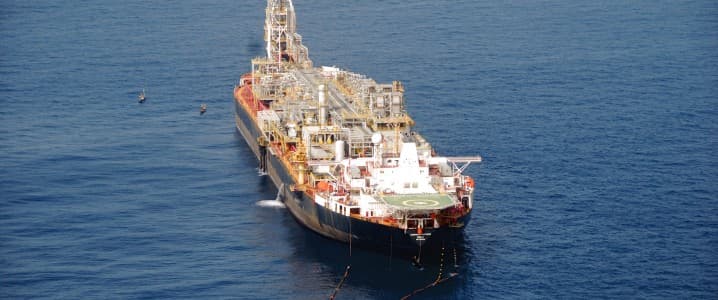Africa’s Oil Nations Will Be Doomed If Exploration Is Halted

The IEA’s shocking call for no new oil and gas exploration on the path to net-zero emissions doesn’t necessarily follow that demand through to its logical end game. A line-up of countries would descend into chaos, creating global instability that would itself threaten the climate by hindering a natural energy transition.
Lofty goals are, well, lofty. And more often than not, they are Western, for obvious reasons emanating from developed countries.
Outside of North America, the East Asian powerhouses and Western Europe ...
Saudi Arabia and UAE would fare well. Both have the means and will to diversify away from oil and embrace clean energy.
Saudi Crown Prince Muhammed bin Salman (MBS) has reinvented himself as a technocrat who is barely even interested in oil anymore, or conflict. He’s interested in his massive smart city, Neom, near the Red Sea: A hugely expensive and ambitious undertaking in new energy and tourism that he has dubbed “a revolution in urban living”. He is interested in creating a vast economy that is not dependent on oil--at all. In fact, the Kingdom just dumped it’s $1.2 billion in shares in Canadian oil giant Suncor. Instead, the Saudi wealth fund has picked up massive positions in the video game industry.
The UAE now claims that 70% of its economic activity comes from non-oil sectors.
Russia might not collapse under the weight of no new oil exploration, but its diversification away from oil and gas--which has long been used as geopolitical leverage--has been slow, at best.
Between 2010 and 2018, oil and gas production increased its share in the Russian economy from 34.3% to 38.9%, while non-oil production activity decreased its share from 53.2% to 50.7%, according to the Warsaw Institute, citing Rosstat data. At the same time, Putin is attempting to position Russia as a leader in climate change mitigation by focusing less on oil and more on natural gas, which it has latched onto (not without reason) as the “bridge fuel” to a cleaner future. Russia’s current LNG operations can ostensibly get it through the IEA’s lofty goals, which will not be heeded at any rate.
Where the logic really breaks down most catastrophically is in Africa, where five of OPEC’s 13 member states are from. They’re all massively dependent on oil.
One of the worst case scenarios is Angola.
At the end of last year, Angola was set for a promotion from the Least Developed Country (LCD) list. COVID-19 delayed that. Not only is Angola one of the most oil-dependent countries in the world, but it’s also been in recession for six years. When the pandemic stuck and took oil demand with it, Angola went into crisis mode. Now, it’s stuck in the LCD category until 2024, barring any further catastrophes.
Against that backdrop, Angolan oil production has been on the decline for five years, and the worst is yet to come. Five years ago, Angola was the top producer in Africa. Now, it’s oil production has plunged to a 15-year low, under 1.2 million bpd. Libya pumps more, and that says a lot. It was on the downward trend long before COVID, yet another nail in this coffin.
According to OPEC, oil contributes 50% of Angola’s GDP and accounts for nearly 90% of its exports.
Now, Angola is hoping that new oil concessions will attract over $67 billion in investment. The IEA’s net-zero recommendations don’t fall in line with this--at all.
Then, we have Nigeria and Chad, two additional African locations that can’t meet the IEA’s criteria.
Nigeria had just started recovering from a 2017 recession when the pandemic-driven oil crisis hit. Oil accounts for 90% of Nigeria’s foreign exchange earnings and 60% of its revenue. Less ominous than Angola, oil accounts for about 9% of Nigeria’s GDP. It’s now targeting a lot more deepwater drilling.
Across Africa, an end to oil exploration could lead to a heightened radical Islamic insurgency that would (and already has started to) spread across the region.
Mozambique, the location of French Total SA’s now-delayed giant LNG project, is the starting point of a new Sahel in jihadist terms, and more (smart and not corrupt) development of resources is one way to loosen the grip of ISIS and its affiliates. Poverty and unrest makes for brilliant ISIS recruits. And it will be a transnational insurgency like we’ve never seen before.
The IEA isn’t calling for an end to oil. It’s calling for an end to new exploration. That’s why we’ll leave Iraq out of this doom-and-gloom picture for now, even though it would crumble under the weight of zero oil and leave the entire region mired in worse conflict than ever. Iraq is not as much about new exploration as it is about enhancing existing production.
The only shorter-term silver lining is that an end to new oil and gas exploration might lead to higher oil prices, which could temporarily boost African economies and staunch unrest. After that, there is no indication that any of these economies are ready for an energy transition, and the IEA, of course, can’t force it on them. If it did, they would crumble and we would see conflict just as brutal as climate change itself.




